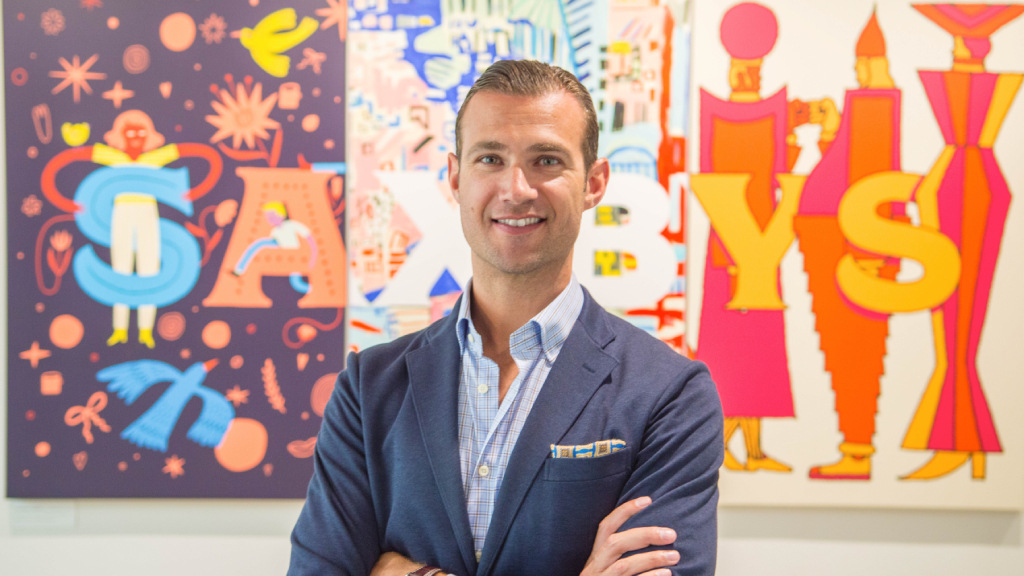Article originally published by the Philadelphia Business Journal on November 23, 2020.
Whenever I have the opportunity to listen to Nick Bayer, founder and CEO of Saxbys talk about his company, I take that opportunity. Bayer was a keynote speaker at the recent annual Startup Fest event at Drexel University’s Charles D. Close School of Entrepreneurship. He was interviewed by Chuck Sacco, assistant dean of strategic initiatives at the Close School.
Saxbys is more than a company that operates cafés selling coffee. Bayer describes Saxbys as a “hospitality company driven by a singular mission: to make life better.” He considers the culture of Saxbys as the source of the company’s competitive advantage.
Bayer said, “Over the years, our company has evolved. We realized there was a greater purpose than just serving great coffee in cool cafés. We are in the ‘human being business.’ We leverage the ubiquity and openness of the coffee shop to be a game changer from an employment and education perspective.”
Bayer has a keen focus on education and opportunity. He was a first-generation college student who attributes his college degree to providing him with otherwise impossible opportunities. This is exemplified by Saxbys’ Experiential Learning Platform (ELP), in which undergraduate students exclusively manage and run cafés. In addition to Saxbys presence in urban and suburban markets, the company has established cafés on 12 college campuses where Saxbys has implemented the ELP system. Saxbys’ first ELP café was established on Drexel’s campus five years ago, followed by a second café at Drexel two years later.
Saxbys’ student CEOs (café executive officers) at cafés on college campuses manage between 30 to 75 of their peers and have autonomy and full P&L responsibility for their café. They present their monthly P&L results for review and discussion to the Saxbys senior leadership team.
These student CEOs are responsible for hiring, developing and leading their team members, scheduling café shifts, managing inventory, planning menus, minimizing waste and spoilage, and ensuring their café meets health and safety standards.
Rarely do 20-year-old college students have this broad range of managerial responsibilities. With student-managed cafés on college campuses, Saxbys is developing future business and civic leaders.
Sacco asked Bayer to take us back to last March when the growing Covid-19 pandemic forced a government response to slow the spread of the pandemic. Bayer replied, “On Monday, March 16, every one of our cafés were ordered to shut down and we stayed closed for the next five months. We had to lay off every one of our hourly team members.
“During the months we were shut down, we reassessed our business and thought about what the future should look like for Saxbys. We went into full planning and rebuild mode. I call it our period of productive hibernation.
“We decided to change Saxbys’ strategy to grow and scale our Experiential Learning Platform on college campuses. This was a significant strategic shift toward becoming an education and opportunity company.
“We also wanted to ratchet up the amount of communication we were doing with our team members and increase our transparency as well. For many of our team members, it’s the first job they have ever had. I wanted them to learn what it looks and feels like to work for a good company. If they go out and work for another company or create their own, it should be one that is as good or better than us.”
Bayer described a strategy meeting he was planning in late May via Zoom, where the senior leadership team would discuss these foundational changes to the business. Bayer said, “Saxbys’ VP of talent suggested that the student CEOs that lead our cafés on college campuses be invited to the meeting to participate and share their views. We wanted to expose these student café leaders to these type of high-level strategic discussions and get their input.”
By involving Saxbys’ student CEOs in this strategy meeting, it helped them create a stronger sense of ownership in their job, which is critically important to the success of fulfilling the company’s mission.
Sacco asked Bayer to share words of advice for entrepreneurship students about to start a business. Bayer responded, “One thing that is often overlooked is the definition of their ‘why.’ Why are you starting this company? Why does your business matter? Why will people buy from you?”
Culture reflects how employees within an organization interact with each other, customers and other stakeholders. Bayer strongly believes that culture and core values are significant competitive differentiators for every company. He is teaching the student CEOs about the importance of values and organizational culture.
Bayer said, “Entrepreneurs should ask themselves, ‘What are our unique, not generic core values?’ These are the values that inspire your people. If you don’t have a galvanizing culture, it is much harder to get through adversity, such as the current pandemic.”
Bayer continued, “I once read that in times of crisis, bad companies cease to exist, good companies survive but great companies – those with a truly differentiating culture – adapt and thrive.” Great advice for all business leaders.
Stan Silverman is founder and CEO of Silverman Leadership and author of “Be Different! The Key to Business and Career Success.” He is also a speaker, advisor and widely read nationally syndicated columnist on leadership, entrepreneurship and corporate governance. He can be reached at Stan@SilvermanLeadership.com.

